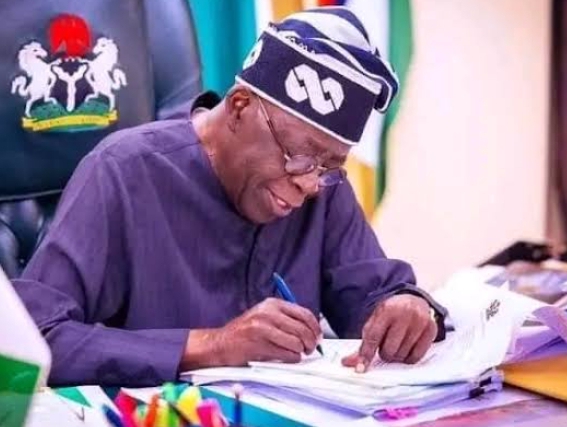-
President Bola Ahmed Tinubu has formally requested the National Assembly’s approval for a massive $21.5 billion external borrowing plan for 2025-2026, alongside additional foreign currency bond programmes.
-
The borrowing is aimed at funding critical infrastructure, stabilizing the economy, and settling outstanding pension liabilities amounting to N758 billion.
The National Assembly has referred the requests to the Committee on Local and Foreign Debts for detailed scrutiny amid concerns about increasing Nigeria’s public debt burden.
President Bola Ahmed Tinubu has formally submitted a request to the National Assembly for approval of a staggering $21.54 billion external borrowing plan for the 2025-2026 fiscal period, alongside a $2 billion foreign currency-denominated bond programme.
The announcement was made through official letters read by Senate President Godswill Akpabio and Speaker Abbas Tajudeen during Tuesday’s plenary session.
ATTENTION: Click “HERE” to join our WhatsApp group and receive News updates directly on your WhatsApp!
The borrowing plan is intended to fund critical sectors such as infrastructure, agriculture, health, education, water resources, security, and financial management reforms.
According to Tinubu, “The projects and programmes under the plan had undergone technical and economic evaluations and were chosen for their potential to spur job creation, boost food security, improve livelihoods, and address Nigeria’s infrastructure deficit.”
President Tinubu justified the borrowing, citing fiscal constraints, the removal of fuel subsidies, and declining domestic revenues as factors necessitating external financing.
The $2 billion foreign currency-denominated bond, to be managed by the Debt Management Office (DMO), will provide local investors with dollar-denominated investment opportunities, potentially deepening Nigeria’s financial markets.
The President stated, “The proceeds from the bond would be deployed into critical sectors of the economy capable of driving growth, enhancing infrastructure, creating employment, and boosting foreign exchange inflows.”
However, Tinubu was candid about the trade-offs: “The programme would increase Nigeria’s public debt stock and servicing costs.”
READ ALSO: Manufacturers to Banks: Stop Penalising Us Over CBN’s Forex Failures
He also sought parliamentary approval for issuing N757.98 billion worth of pension bonds to settle outstanding pension liabilities under the Contributory Pension Scheme, highlighting that “settling the outstanding liabilities would alleviate hardship for retirees, restore confidence in the pension system, boost morale among public servants, and stimulate economic growth by increasing liquidity.”
The Federal Executive Council (FEC) had previously approved this bond issuance on February 4, 2025. Despite the urgent nature of these financial initiatives, Senate President Akpabio has referred all requests to the Committee on Local and Foreign Debts for thorough examination before any parliamentary endorsement.

















Leave a comment